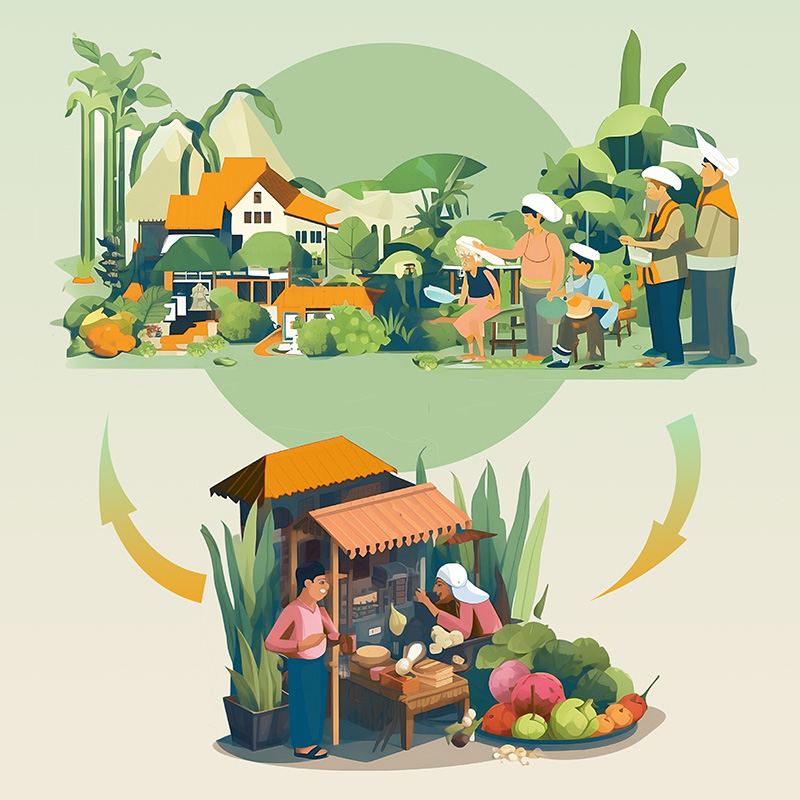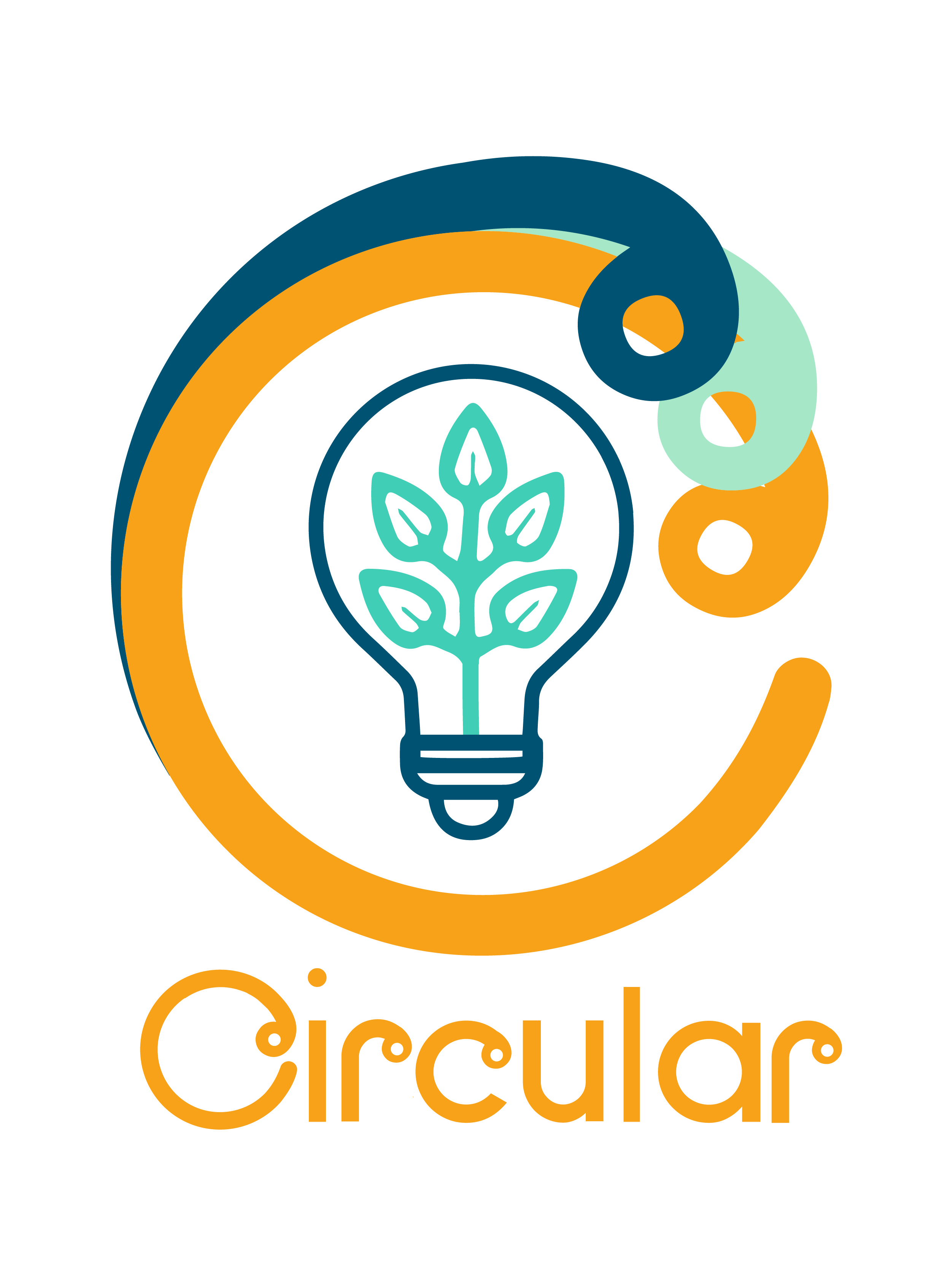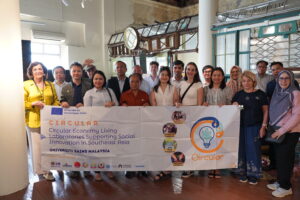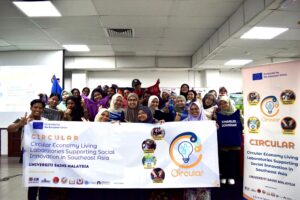About the project:
SEA countries are particularly affected by the effects of climate change. This is increasingly more concerning since agriculture and agro-based industries are the backbone of the economy in many SEA countries and, in any case, pivotal in ensuring access to affordable and healthy food for all.
Circular economy can help revert this context by favouring eco-effectiveness and reducing environmental impact, at the same time producing a positive ecological, economic and social impact. Indeed, one important principle of circular economy is to decouple economic growth from the consumption of raw materials. In addition to benefits such as resource savings and a reduction in the emission of greenhouse gases, circular economy can lead to a significant growth in employment and in innovation.
CIRCULAR will help boost the social innovation ecosystem in Malaysia, Cambodia and Laos by bringing together and reinforcing the links between Teaching, Research, Innovation and Society in order to collaboratively design and test innovative solutions to mitigate waste management problems, promote circular economy approaches and improve the quality of life of local communities, supported by a socially engaged student body that is committed to environmental sustainability.




Objectives:
Design a new collaborative model
for reinforcing HEIs’ third mission and for enhancing effective and successful Knowledge Square cooperation for social innovation with a specific focus on the topic of circular economy.
Enhance community-based participatory research and citizen science
at the same time promoting a new pedagogical framework for embedding community engagement actions as part of Higher Education study programmes.
Set-up Living Labs
as open innovation ecosystems that integrate education, research, development and innovation, and regional development to help trigger the adoption of green and more sustainable practices and a more efficient use of resources.
Build the capacities of academics
to design, organise, and implement collaborative social innovation programmes that promote students’ active citizenship and simultaneously contribute to solve everyday sustainability and climate-change problems.
Build the capacities of researchers
on new methodologies and updated strategies to conduct community-based research activities on the topic of circular economy and waste management.

Empower students and young people
to become socially engaged, climate- conscious and active citizens and raise the awareness of students , young people and members of local communities on the topic of circular economy and sustainable development and promote alternative consumption habits and waste management practices underpinned by knowledge, research and innovation generated by Higher Education Institutions.
Living
Labs
News & Events:
CIRCULAR Final Conference Celebrates Three Years of Impact, Innovation, and Collaboration in Southeast Asia
As the CIRCULAR project enters its final months, partners, educators,...
NUOL’s Circular Economy Living Lab Engages Vangvieng Community in Hands-On Waste Management Workshop
National University of Laos (NUOL) team of the Circular Economy...
Fifth Circular Newsletter
Welcome to the final edition of the circular newsletter!
Erasmus+ CIRCULAR Drives Circular Economy Awareness at USM
Universiti Sains Malaysia (USM) continued to show strong leadership in...











